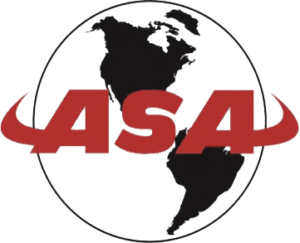 The Aerospace States Association (ASA), a non-partisan aerospace organisation of state Lieutenant Governors, and the Association for Unmanned Vehicle Systems International (AUVSI) have signed an agreement to help transform the national economy with unmanned aircraft systems (UAS).
The Aerospace States Association (ASA), a non-partisan aerospace organisation of state Lieutenant Governors, and the Association for Unmanned Vehicle Systems International (AUVSI) have signed an agreement to help transform the national economy with unmanned aircraft systems (UAS).
ASA Chair, Alabama Lt. Governor Kay Ivey, said, “Unmanned aircraft systems have the potential to transform how we move and see things, like the internet has transformed how we communicate. UAS are emerging technologies that will transform America by providing wide-ranging economic, environmental, safety, and security benefits. The UAS industry is expected to grow our state economies, create over 100,000 high-paying jobs, and be a source of innovation and inspiration for our youth to enter the STEM workforce.”
“We look to ASA to provide leadership at the state level to advance unmanned aviation as its members have successfully done to expand manned aviation,” said Brian Wynne, president and CEO of AUVSI. “Informing state elected officials about the benefits of unmanned systems and listening to their concerns and interest in this emerging technology are vital to enabling the infrastructure and public policy needed to grow our industry.”
Mr. Wynne will address the ASA annual meeting on July 29 in Milwaukee, Wisconsin, where he will discuss the recently released FAA “Small UAS Rule.” The two associations will also plan joint efforts to promote the UAS industry in states across the nation.
States’ Role in Supporting American Aerospace
- Educate and train aerospace professionals (the next generation of scientists, engineers and entrepreneurs) who will develop the next generation aviation system and pioneer the frontiers of space.
- Develop, test, and incubate new technologies across a wide spectrum of corporate, academic, and private innovation infrastructures.
- Sponsor aerospace conferences and business roundtables to enable networking among key aerospace leaders.
- Facilitate attractive tax structures, leverage venture capital, and seed public-private partnerships to promote entrepreneurship and expand space enterprise.
- Provide adequate infrastructure (e.g., airports, spaceports, roads, communications, internet access) and leverage unique geographical assets (e.g., landforms, location, climate) to develop terrestrial analog test sites.
- Dedicate public lands for airports, space launch and other aerospace-related activities, and create research, and education centers to both support these programs and facilitate technology transfer.
- Convey the multiple scientific, educational and commercial benefits of space exploration to the general public.


















